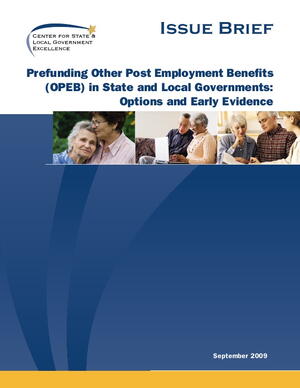
This new issue brief takes a hard look at the options state and local governments are pursuing to reduce their unfunded liabilities for retiree health care.
The brief cites examples of how governments are addressing their OPEB obligations:
- West Virginia, which has established a trust fund, also made changes in its health care benefit plan for retirees, and most recently, eliminated retiree health care subsidies for all employees hired after July 1, 2010.
- Montgomery County, Maryland, which developed a multi-year plan to arrive at full funding, including the establishment of a Section 115 trust and an independent board to manage the trust and its investment policies.
- Oakland County, Michigan, which began prefunding retiree health care liabilities in 1987 and more recently has issued OPEB bonds to help fund the County’s Section 501(c)(9) Voluntary Employees’ Beneficiary Association (VEBA).
- Gainesville, Florida, a city with a consistent history of paying in excess of its annual required contribution and that may be the first local government to complete its prefunding obligations through the sale of OPEB bonds in 2005.
Governments know that their retirement benefits have helped them attract and retain the talent they need. Most governments continue to fund their retiree health benefits on a “pay-as-you-go” basis even as they assess strategies to deal with escalating costs.
